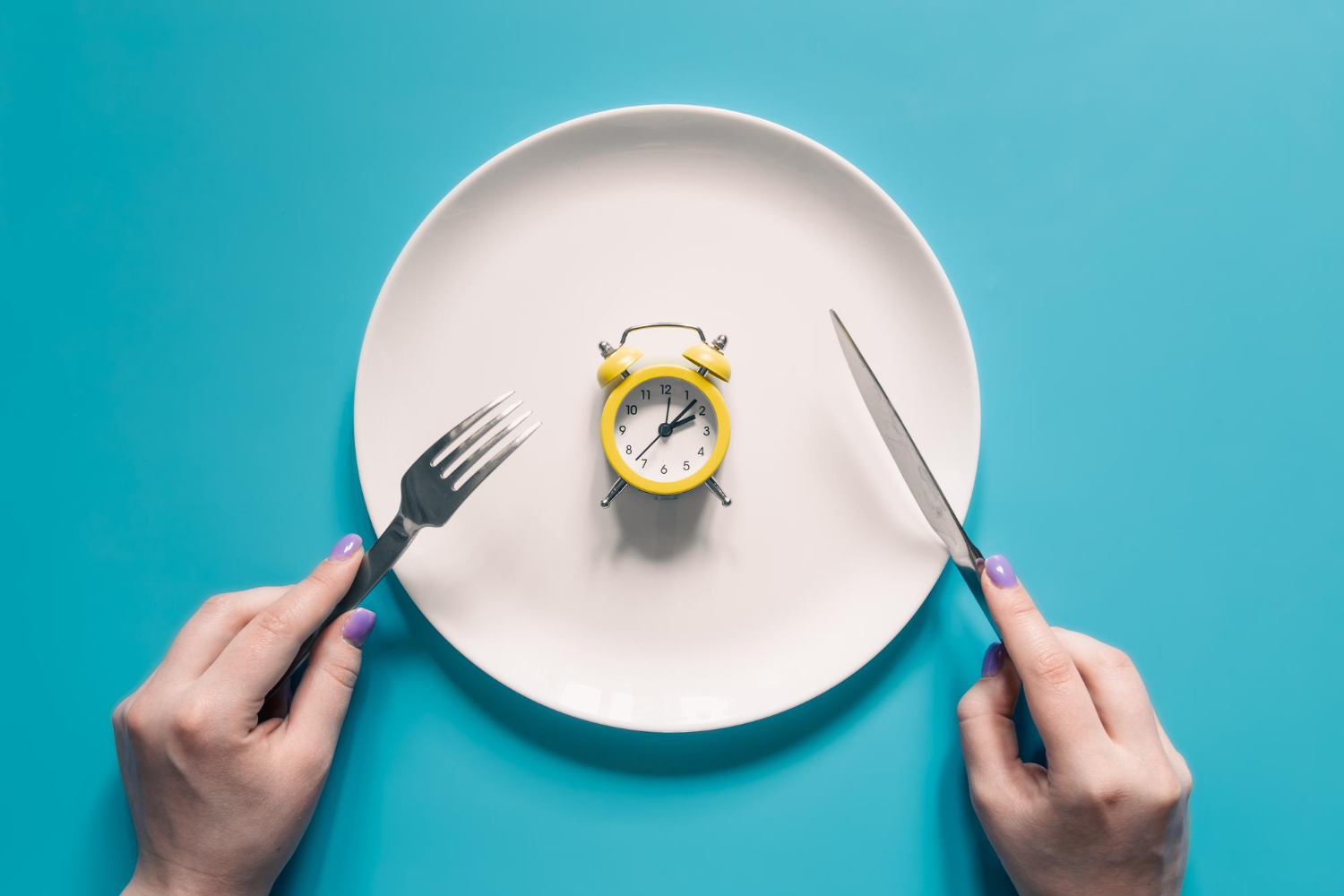Water fasting for 3 days can transform your health. This article explores its benefits and practical tips. For both weight loss and overall well-being, water fasting is an effective tool. However, it’s essential to approach it with proper preparation and understanding. When done correctly, it can lead to profound changes in your body and mind.
What is Water Fasting?
Water fasting is a technique that allows only water to be consumed while cutting food for a certain timeframe. A 3-day water fast, however, helps your body to enter a ketosis stage and reflects different health benefits. In contrast, shorter timeframes of fasting do not lead to as many beneficial effects, nor do they give your body enough time to develop metabolic adaptations.
A standard 3-day water fast might begin after dinner on Friday. Then you would not eat any foods on Saturday and Sunday and end your fast with breakfast on Monday morning. This method ensures that your body will burn through its energy reserves — which is stored as fat — to keep you moving.
What Happens to Your Body During a Water Fast
Advantages of Water Fasting for Health
Water fasting induces autophagy, a cellular, process that removes damaged cells and promotes metabolic health. It clears out the old and dysfunctional elements allowing your body to function better. In doing so, it may lower the risk of chronic diseases including cancer and Alzheimer’s.
Additionally, water fasting can reduce inflammation inside the body. Inflammation is a big part of diseases like heart disease, diabetes, and some cancers, too. Water fasting aids in better overall health by reducing inflammation.
Moreover, water fasting can increase insulin sensitivity, a key factor in regulating blood sugar. Improving insulin sensitivity can prevent type 2 diabetes and contribute to overall metabolic health.
Advantages of Water Fasting For 3 Days
While fasting, your body utilizes stored fat as energy, which results in weight loss. It also helps control hunger hormones. When you’re not eating, your insulin level falls, helping you burn fat. Fasting will also increase secretion of norepinephrine (noradrenaline), a hormone or neurotransmitter that increases fat burning and boosts metabolism.
Additionally, fasting breaks the cycle of eating and snacking every day. This will help you increase your awareness and create a healthier relationship with food. This reset allows us to eat more mindfully, eating when you’re genuinely hungry rather than bored or habit.
Besides weight loss, fasting can improve waist circumference and total body fat percentage. Such adjustments are very helpful to keep away from weight problems associated diseases and enhance the face.
How to Prepare for Water Fasting For 3 Days
Seek medical advice to be sure fasting is appropriate for you. Before trying any kind of fasting protocol, you must first learn about your body’s needs and limits. This consultation may shield you from potential health hazards.
Also take into account your current health disposition and lifestyle. Fasting may also not be advisable in the presence of underlying medical conditions, such as diabetes or eating disorders. You need to take care of your health and well-being first and foremost.
Prepping your body for a fast is that in the days preceding the fast, you decrease your food input. Doing so can ease your system and make it easier on your body to transition into fasting. You could, for example, eliminate processed foods and sugar and then move to lighter meals that consist of fruits and vegetables.

Mental Preparation
Make clear goals and be mentally prepared for fasting. Fasting can be difficult, particularly if you are a beginner. A positive frame of mind and having some goals can also make the process easier and add to the number of new friends you make.
Imagine yourself having succeeded in the fast and benefiting from it. Positive self-talk and affirmations can also help strengthen your determination. Do keep in mind that fasting is physical but also a mental and emotional challenge.
Making a support system can also be helpful. Spending this time away from friends and family, you may feel isolation during your fast. Writing down your thoughts and feelings during the fast can provide an additional focus and reflection on where you stand.
Foods To Eat At Various Times During Water Fasting For 3 Days
Stay Hydrated
Drink water to stay hydrated. One thing I find out that drinking enough water is very much important during fasting due to the fact it keeps our body going, allows our organs to perform their functions normally and starvation to a certain extent. Strive to drink a minimum of eight glasses of water daily.
Even herbal teas, like peppermint or chamomile, can deliver comfort and help taming cravings. When you have a water bottle on hand, it encourages you to regularly sip on it and help you stay hydrated throughout the day.
Sprinkling a little sea salt or electrolyte supplements in your water will balance your electrolytes and can prevent dizziness, fatigue, etc. But stay away from high-sugar-added drinks or ones with artificial sweeteners, as they may break the fasted state.
Managing Hunger Pangs
“No. You distract yourself with things. Hunger is also waves. Do some light activities like reading or going for a walk to distract yourself from food. Breathing exercises help with clarifying and managing your hunger.
Being active, whether through work projects, hobbies or social activities, can distract you from the fast. Keep reminding yourself that hunger is temporary and that it will pass, just like the waves. Concentrate on the benefits in the long term and what led you to do the fast.
These practices can help reinforce a sense of centeredness and calm throughout the fast as well. These can help to abide stress and create living experience during fasting life.
Water Fasting For 3 Days: What to Anticipate
Physical Sensations
You might feel dizzy or have cold hands or feet. These are normal responses. These sensations will probably go away once you get more accustomed to fasting as your body transitions to this dietary state.
Some voice headaches or muscle aches as well. These can be mitigated by drinking enough water and making sure you’re getting enough electrolytes. If your body asks you to have a break, give it a break.
When your body starts to transition into ketosis, you should notice a change in the odor of your breath. This is a well-known side effect and signifies your body is using fat for energy. Maintaining a good oral hygiene routine and staying hydrated with water can reduce this problem.
Emotional Changes
Once you can push through the initial struggles, fasting may also lift your mood and mental clarity. After adjusting, many people find they feel more focused and alert. Ketones (secondary products of fat metabolism) produced when on a ketogenic diet are responsible for this enhanced mental clarity.
In addition to these great health benefits, fasting can implement a huge sense of accomplishment and more self-discipline. Overcoming the hard days is a confidence- and willpower-building exercise.
And it’s also normal for irritability or emotional discomfort to set in at times during a fast. If you know a thing or two about these potential emotional shifts, then it can help you weather them like a champ. Indulge in things that you enjoy and that help you relax – listen to music, do yoga, go for a walk in nature.
Breaking the Fast
Reintroducing Food After Water Fasting For 3 Days
Begin with things like fruits, vegetables and broths. Avoid heavy, greasy meals. This progressive reintroduction of food allows your digestive system to acclimatize, mitigating the risk of discomfort.
Start with brain-friendly things to eat, like fruit, or a vegetable broth. The following few hours, adjust more solid food as you focus on nutrition dense things.
It is also very important to chew the food well and eat slowly. This method allows your body to gradually settle back into digestion and minimize the chances of overeating. Notice how your body reacts to each new food and adjust as needed.
Post-Fast Nutrition
Replenish your body with nutrient-dense foods. Add in protein, healthy fats, and complex carbs. To maximize the health benefits of fasting, eating a well-balanced meal after fasting can additionally promote overall health.
Eat a variety of colorful fruits and vegetables, lean proteins, whole grains, healthy fats and most importantly listen to your body. This will ensure that your body gets the nutrients it needs to recover and be energized.
Include foods that are high in probiotics like yogurt or fermented vegetables to help with gut health. Foods known for their hydrating properties, such as cucumbers and watermelon, can help replenish your body’s fluids and electrolytes as well.
Common Mistakes During Water Fasting For 3 Days and Ways to Avoid Them
Refeeding After Your Fast
Reintroduce food slowly so they don’t have digestive problems. Practice mindful eating. The period after fasting is when a person may tend to overeat, which can cancel out the benefits and make them feel uncomfortable.
Finally, eating should be a sensuous experience, take your time, enjoying every mouthful, take note of what your body is saying in terms of hunger and fullness. Eating slowly also can help you realize when you’re satisfied, reducing the likelihood of overeating.
If you will be eating out post-fast, plan and research your meals to avoid being impulsive. A meal plan helps to take the guesswork out of what to eat, making it easier to eat well and stick to your nutrition plan.
Not Hydrating Enough
Headaches and dizziness may be strands of dehydration. Prioritize hydration. To stay healthy you must also keep drinking fluids all along the period of fasting.
Carry a water bottle with you, and sip on it throughout the day. If plain water seems dull, switch it up with a slice of lemon or a few mint leaves for extra flavor.
Checking the color of your urine can be a simple way to assess your hydration status. You want your urine to be light yellow, which means you are well hydrated.
Eat Stop Eat With Anabolic Fasting Testimonials


Potential Risks and Precautions
Who Should Avoid Water Fasting
Pregnant women, individuals with eating disorders, and those with certain medical conditions should avoid fasting. Always consider your health status before starting a fasting regimen.
If you have any concerns about fasting, consult a healthcare professional. They can provide personalized advice based on your health history and current condition.
Individuals with a history of eating disorders may find that fasting exacerbates unhealthy eating behaviors. It’s crucial to prioritize mental health and well-being when considering a fast.
Medical Considerations
Always consult a healthcare provider before starting any fasting regimen. This step ensures you’re fasting safely and responsibly, considering your health history and current condition.
Your healthcare provider can help you determine if fasting is appropriate for you and provide guidance on how to do it safely. They can also monitor your progress and address any concerns that arise during your fasting journey.
Certain medications may need adjustment during a fast. For example, if you take medications that require food for absorption, your healthcare provider can help you create a plan that accommodates both your fasting and medication needs.
Conclusion: Water Fasting For 3 Days
Water fasting for 3 days offers weight loss and health benefits. Approach it with care and preparation for optimal results. Always prioritize your well-being and listen to your body. Fasting can be a powerful tool for improving your health, but it’s essential to do it responsibly.
As with any health practice, fasting is not a one-size-fits-all solution. What works for one person may not work for another. Listen to your body, be patient with yourself, and make adjustments as needed to find what works best for you.
FAQs About Water Fasting For 3 Days
Is Water Fasting For 3 Days safe for everyone?
No, certain individuals should avoid fasting. Consult your healthcare provider. Water fasting is not recommended for pregnant women, individuals with eating disorders, and those with specific medical conditions.
Can I exercise during the water fast?
Light exercise is okay, but avoid intense workouts. Listen to your body. Light activities such as walking or yoga can help keep you active without overtaxing your body.
What should I drink during the water fast?
Water, herbal teas, and electrolyte drinks. Avoid sugary beverages. Staying hydrated is crucial during fasting, as it helps maintain bodily functions and reduces hunger pangs.
How often can I do a 3-day water fast?
Once a month is generally safe. Always monitor your body’s response. Fasting too frequently can lead to negative effects such as nutrient deficiencies or an unhealthy relationship with food.
Will water fasting affect my metabolism?
Fasting can boost metabolism initially, but long-term effects vary. Balance fasting with proper nutrition. It’s essential to eat a balanced diet and ensure you’re getting enough nutrients to support your metabolic health.






